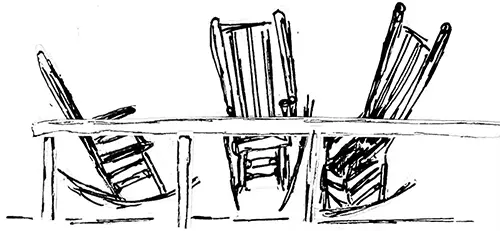history 51
Taste and See: A Review of Christian Poetry in America Since 1940
While many recognize the limits of human language and the ways it has sometimes been used to harm, they see language as capable of naming (or, at least, gesturing toward)…
Toward Philosophy of Birth? A Review of Natality
For Banks, the glory of natality is not that it is a passage into the world for something or someone else, but that birth is a tool for our own…
Conservatism in a Liberal Regime
These essays unite history, philosophy, and social commentary to say something about the ebb and flow of ideas which shape post-modern accounts of who we are and where we came…
Prophetic History: A Review of A History of the Island
Contemporary sensibilities tend to prefer the nihilist abyss to such salvation, even as we pathetically pursue the latest "cure" for that emptiness—be that radical politics, surgical revisions to our anatomy,…
The Cake of Many Layers: Walking a City through Time
To walk a place is to open the door to the possibility that you will grow to love it. With time, you could get to know it in an intimate…
Shame and Exceptionalism: Livy’s Subversive History for Liberty
Livy asserts that shamelessness led to decadence which, in turn, led to greed and eventually devolved into demagoguery and tyranny. His assertion that Roman liberty and equality were destroyed by…
Living When We Are: A Review of Brisbane
Vodolazkin's novels do for Time what Wendell Berry does for Space: We can't just live where we are, we have to live when we are, too. So thanks to Vodolazkin…
Calvino’s Leonia and the Weight of History
The conservationist recognizes that the society we live in, as much as the natural world we live in, was given to us as a gift with the demand that we…
Embattled: The Story of the O’Hanlon Fresco
Mill Valley, CA. As our country struggles to come to terms with its racist past—and present—a controversy surrounding a 1934 mural at the University of Kentucky mirrors the racial tensions…
The Midwest: A Place with a History and a Future
In sum, Finding a New Midwestern History is an exemplary compilation of historical interpretations both renewed and new. The enthusiasms of Garland, Wright, and Turner—registered a century and a quarter…
Turning Heritage into History
Disenthralling ourselves from the past is an American tradition, and gaining a clear-eyed vision of the flaws and achievements of previous generations is itself part of our heritage.
“Blackest Land, Whitest People”
From here in my long-time Midwestern location, these lots are unshakeable reminders of a place in Texas where a shameful darkness once surrounded a part of my childhood.
Time and Place in Eugene Vodolazkin’s Imagination
We occupants of the Porch can profitably read Vodolazkin in light of our own concern to acknowledge human limitations and find ways to live well and more fully in our…
The Monkey in the Margin: History, Tradition, and Transgression
[T]he early scholastic notion of revelation was more dynamic than the modern one. Revelation does not occur, in the medieval understanding, once and for all in the static letters of…
Notre Dame and the Need for the Past
We know now that much of the Notre Dame Cathedral survived and that it will be rebuilt. But while the fire at the Notre Dame Cathedral burned, Americans mourned. They…
Nomocracy In Politics
FPR readers can now enjoy another web magazine that complements the already excellent work of the Front Porch Republic. Nomocracy In Politics is a new website that explores Liberty, Prudence, Imperfection, and…
New ANAMNESIS Symposium: “Views on Hawthorne, Simms, History, and Progress.”
Many FPR readers will enjoy the new symposium, "Views on Hawthorne, Simms, History, and Progress," in ANAMNESIS, A Journal for the Study of Tradition, Place, and 'Things Divine.'
The Challenge Confronting Conservatives, Pt. I
Like the football coach whose pep talks wear thin, a President who turns every cause into a holy one, every enemy into a Hitler, and every conflict into a genocide,…
Islam and America: The President’s Fictitious History
It is characteristic of the tyrant, however, that he thinks he can get away with lies in the sense that no one will contradict them even when his statements are…
Preserving Local Memory
My grandma didn’t put up a Christmas tree. She didn’t bake pies. And she didn’t make fudge. Her kitchen was silent. I believe it was her way of mourning, not…
Evidence Gone Missing
Who is following in Susan B. Anthony's footsteps: Connie Schultz or Sarah Palin? Is abortion an empowering right necessary for true equality, or an inhumane tragedy linked to lack of…
John William Corrington: A Literary Conservative
It seemed a good time to get out and leave the classroom to idiots who couldn’t learn and didn’t know better, and imbeciles who couldn’t teach and should have known…
The Duma on the Potomac, for the Greater Glory of Government
The American Bolsheviks, on the other hand, are the mad-as-hell Tea Party with their sexpot Lenin Sarah Palin, fresh from cash-cow book tour and on a First Class Junket into…
The Stories We Tell…
Philadelphia, PA. If you have read just one of Wendell Berry’s novels or short stories, then you have glimpsed this Kentucky farmer’s love for family, place, and story. In a contemplative…














